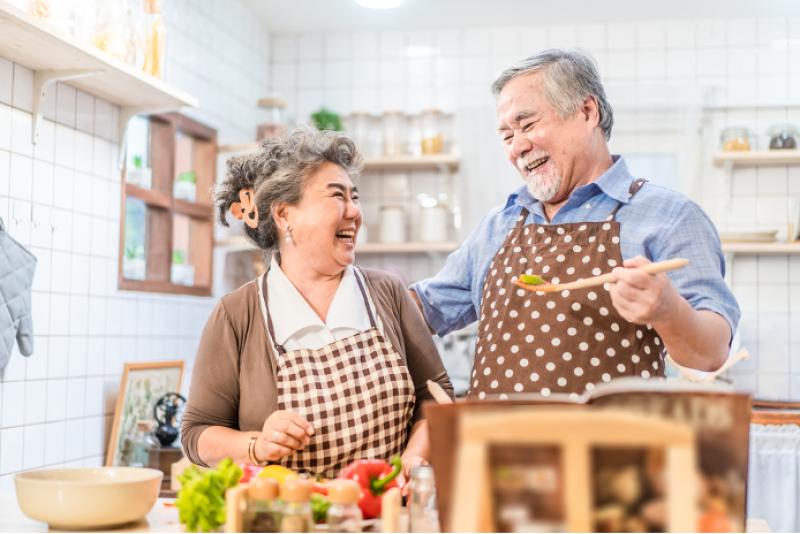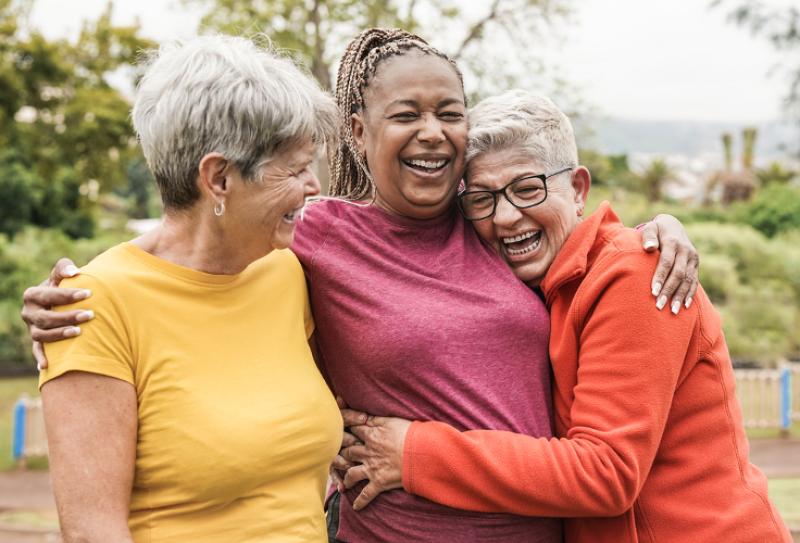11 Ways to Boost & Improve the Mood of Seniors
Seniors can struggle with isolation, loneliness and declining mental health due to a variety of factors. While this may not be encouraging to hear, there are many different steps that you can take to help boost their mental health, from driving them to social clubs to giving them nursing home clothing. Here are 11 ways to boost and improve the mood of the seniors in your life:
Encourage regular exercise.
Exercise stimulates your brain to release feel-good neurotransmitters like dopamine, which helps boost mental health. Exercise also helps seniors to stay healthy and fight age-related bone and muscle loss. There are plenty of low-impact exercises that seniors of all fitness levels can do, including chair exercises for those who are wheelchair bound. Talk with their doctor beforehand if they haven’t worked out in a while to see what exercises will be safe for them.
Promote social connections.
Staying connected to friends and family is key for boosting mental health at any age. Make sure that you are inviting your elderly loved ones to as many family gatherings as possible and give them gifts for the elderly to show you are thinking of them. Also encourage them to stay connected to old friends and to make new friends their own age through community center events and other gatherings for seniors.

Souce: Hananeko_Studio / Shutterstock.com
Help them with their hobbies.
Hobbies can be a great stress reliever at any age, and they also give older adults a sense of purpose once they are no longer working a full-time job. Encourage your elderly loved ones to pick up an old hobby they may have let lapse, or to explore new interests now that they are retired. Offer to help buy them supplies or to find a class for seniors in your local area to help them improve their skills even more.
Learn something new.
Just because your elderly loved ones’ school days are long behind them doesn’t mean they can’t keep learning! In fact, many community centers offer classes specifically tailored to seniors to help them learn useful skills. If your elderly loved one is more tech savvy, they can also sign up for online classes on a variety of subjects. Learning a new skill will stimulate their brains and give them a sense of purpose.
Give them something to take care of.
If your senior is up to it, then taking care of something else can contribute to their sense of fulfillment and purpose as well. Some seniors benefit from adopting a pet such as a dog or a cat, but not everyone is up to taking care of an animal, especially a higher maintenance breed. As an alternative, you might consider giving them a houseplant that is easy to take care of, which offers lower stakes.

Source: Sabrina Bracher / Shutterstock.com
Make everyday life easier.
Everyday tasks such as getting dressed become much harder as people age, which can contribute to a decline in mental health. Try giving your elderly loved ones gadgets that can make everyday life easier, such as adaptive clothing especially designed for seniors and utensil grips so they can keep feeding themselves. This will improve their sense of independence and their overall mental health.
Give them practical support.
In many cases, elderly adults can’t participate in healthy activities due to practical barriers, such as not being able to drive a car or operate a computer due to vision impairment. Offering to help them get ready and drive them to and from their destination will make it way easier for them to visit a therapist, socialize with others, attend exercise classes and participate in other activities that will have a positive effect on their mental health.
Suggest that they volunteer.
Many older adults feel like their lives are at loose ends once they retire, but volunteering for a charitable cause can help give structure to their days and reignite their sense of purpose. Help your loved one find a cause in their area that they can volunteer their time and knowledge for, and offer to go with them if possible so you can spend quality time together while helping others.

Source: Krakenimages.com / Shutterstock.com
Make sure they’re eating a healthy diet.
There’s a lot of truth to the saying “you are what you eat,” and diet plays a big role in both physical and mental health. Unfortunately, a lot of older adults struggle to eat a healthy diet or even regular meals. Physical health problems can make it hard to cook, while dementia can make it difficult to remember to eat. As your loved one ages, they might need help with grocery shopping, cooking and even feeding themselves to make sure they are getting the nutrients they need.
Check their vitamin levels.
While seniors should ideally be getting all their required nutrients from their diet, the reality is that some elderly adults need a little boost in the form of supplements. Certain vitamin deficiencies, such as vitamin D and B12, can actually have a pretty big effect on mental health. Talk to their doctor about getting their vitamin and mineral levels tested to determine if they have any deficiencies, and make sure they’re taking their supplements regularly if they already have a prescription.
Treat mental health conditions.
Some seniors have underlying mental health problems, such as anxiety and depression, and their mental health will remain subpar until these issues are addressed. There are many treatment options available for these conditions, including talk therapy, medications and more. If you think that your loved one is struggling with more serious mental health issues, make sure that they are getting the treatment that they need in order to get better.
What are your other top tips for improving the mental health of older adults in your life? Let us know in the comments below!
More to Read:
Previous Posts:
Next Posts:




